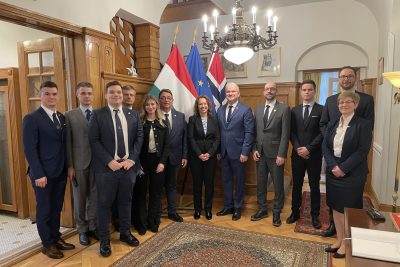The Hungarostudy survey, conducted for the sixth time, and the resulting Hungarian State of Mind 2021: Family – Health – Community, presented at the final conference of the memorial year on the 80th anniversary of the birth and 10th anniversary of the death of Mária Kopp, enriched the public with a wealth of information useful for both science and policy. At the event, organized by the Mária Kopp Institute for Demography and Families, the authors of the book, along with experts from the Institute of Behavioural Sciences of Semmelweis University, shared several suggestions for improving mental health based on the results of the survey of around 7,000 people.
„There is still a lot of illness and morbidity, yet the data shows that despite the difficulties of the pandemic, our overall attitude towards family, supportive communities and the nation is healthier now than in previous years,” said Tünde Fűrész, President of the Mária Kopp Institute for Demography and Families (KINCS). She stressed that according to the results, Hungarians’ self-esteem has increased, and that we are able to cope with the difficulties and challenges we face.
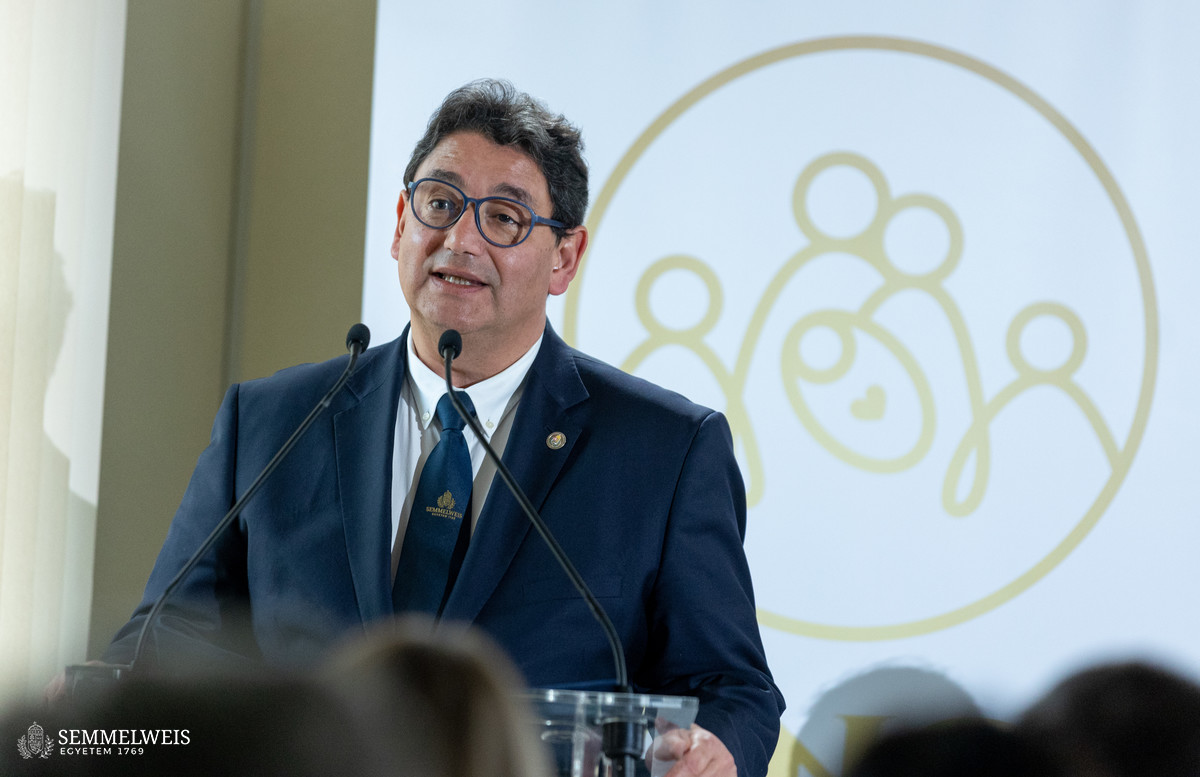 Family is something precious in life, like oil in the lamp of life – quoted Rector Dr. Béla Merkely Géza Gárdonyi at the conference, emphasizing that in his opinion, it is even more than that, family is the most precious thing in life. Family is the root of our lives and provides a loving, secure environment even when we are at our most vulnerable and in greatest need.
Family is something precious in life, like oil in the lamp of life – quoted Rector Dr. Béla Merkely Géza Gárdonyi at the conference, emphasizing that in his opinion, it is even more than that, family is the most precious thing in life. Family is the root of our lives and provides a loving, secure environment even when we are at our most vulnerable and in greatest need.
Family is the smallest unit of our community, and thus the smallest unit of our society, which we need to protect and support for the growth of the nation.”
– stressed the rector. He added that this was advocated by Mária Kopp as well, who was a highly respected scientist, a popular teacher, one of the most important female doctors besides Vilma Hugonnai and a loving mother. Years after her death, the influence of the former leader of the Institute of Behavioural Sciences at Semmelweis University can still be felt throughout today’s Hungarian family and social policy, and her main message is that every desired and planned child should be born in Hungary,” said Dr. Béla Merkely. This is what inspired the university’s family-friendly program launched in the 250th jubilee year, with which Semmelweis joined the Three Princes, Three Princesses Movement of family-friendly universities by the end of 2022, the rector said.
The new Hungarostudy survey, which reflects the physical and mental health of the Hungarian population along with the psychological and social factors influencing it, was carried out in cooperation between the university and KINCS. “Let us do our best to ensure that the spirit and legacy of Mária Kopp is preserved, because a society full of loving, cohesive families and happy children is in the interest of all of us,” added Dr. Béla Merkely.
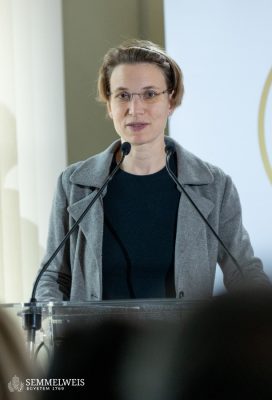 The study contains data essential for government work also, stressed Dr. Ágnes Hornung, State Secretary for families at the Ministry of Culture and Innovation. According to her, the government’s aim is to support families and young people and break down barriers to their well-being. She drew attention to the benefits that come into force from 2023: the exemption from personal income tax for women under 30 who have children, and the cancellation of student loan debts for women who have children two years after they finish their studies, which are intended to ensure that work and study are not mutually exclusive.
The study contains data essential for government work also, stressed Dr. Ágnes Hornung, State Secretary for families at the Ministry of Culture and Innovation. According to her, the government’s aim is to support families and young people and break down barriers to their well-being. She drew attention to the benefits that come into force from 2023: the exemption from personal income tax for women under 30 who have children, and the cancellation of student loan debts for women who have children two years after they finish their studies, which are intended to ensure that work and study are not mutually exclusive.
Dr. György Purebl, Director of the Institute of Behavioral Sciences at Semmelweis University, one of the editors of the study, emphasized that it pays off many times over on both an individual and social level if they intervene and help families externally. This can be individual psychological counselling, but also family policy measures that can improve physical and mental health. According to the survey data, life expectancy in Hungary is five years shorter than the EU average, 50% of which is related to lifestyle-related reasons.
 Among the recent data on Hungarians’ mental health, he said it was encouraging that the proportion of individuals reporting suicidal thoughts halved between 2000 and 2019, but he was concerned that the proportion of people with depression remained the same.
Among the recent data on Hungarians’ mental health, he said it was encouraging that the proportion of individuals reporting suicidal thoughts halved between 2000 and 2019, but he was concerned that the proportion of people with depression remained the same.
He noted that further research is needed into the unmet mental health needs that lead 9 per cent of Hungarians who consider themselves healthy to take psychiatric drugs, typically tranquillisers, on a regular basis.
András Székely, Senior Research Fellow at KINCS, pointed out that people living in relationships, marriages, families and active members of communities are much more satisfied, happier and healthier than those living alone.
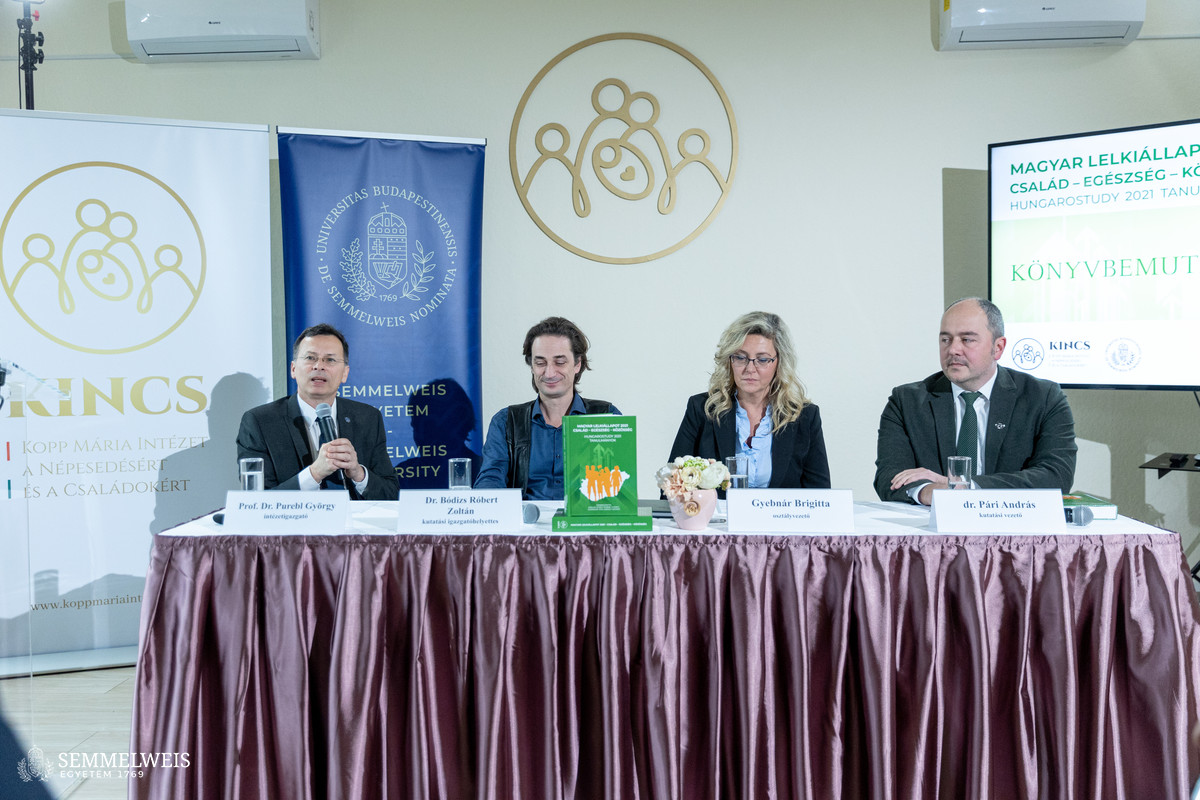 At the roundtable discussion, concrete suggestions for action related to this and to curbing depression included strengthening family protection services; Brigitta Gyebnár, Head of Unit for Women’s Policy at the Deputy State Secretary for families of the Ministry of Culture and Innovation, said that counselling and education related to family life and parenting support should be improved, and community-based, state-subsidised care should be made more accessible and broadened. Dr. Róbert Zoltán Bódizs, Deputy Director of Research at the Institute of Behavioural Sciences of Semmelweis University, emphasizing the anti-depressive effects of a steady routine and adequate sleep, added that it would also aid families with young children to have more children if they received specific help to alleviate exhaustion and sleeplessness.
At the roundtable discussion, concrete suggestions for action related to this and to curbing depression included strengthening family protection services; Brigitta Gyebnár, Head of Unit for Women’s Policy at the Deputy State Secretary for families of the Ministry of Culture and Innovation, said that counselling and education related to family life and parenting support should be improved, and community-based, state-subsidised care should be made more accessible and broadened. Dr. Róbert Zoltán Bódizs, Deputy Director of Research at the Institute of Behavioural Sciences of Semmelweis University, emphasizing the anti-depressive effects of a steady routine and adequate sleep, added that it would also aid families with young children to have more children if they received specific help to alleviate exhaustion and sleeplessness.
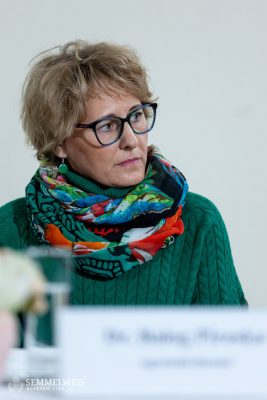 Dr. Piroska Balog, Associate Professor at the Institute of Behavioural Sciences of Semmelweis University drew attention to the fact that a deliberate commitment to relationships and marriage, as well as having children, contributes to mental health. She therefore believes that young people should also be assisted to learn how to form secure attachments.
Dr. Piroska Balog, Associate Professor at the Institute of Behavioural Sciences of Semmelweis University drew attention to the fact that a deliberate commitment to relationships and marriage, as well as having children, contributes to mental health. She therefore believes that young people should also be assisted to learn how to form secure attachments.
Zsófia Nagy-Vargha, Deputy State Secretary for Youth Affairs at the Ministry of Culture and Innovation said that this year the focus of government support for NGOs will be on mental health programs, as alarming data on the mental health of teenagers and twenty-somethings has emerged in the aftermath of the pandemic. „According to our research, the biggest fear of the younger generation about starting a family is not finding a partner, followed by concerns about the responsibilities of parenthood, and only thirdly, financial problems,” said Fruzsina Skrabski, president of the Three Princes, Three Princesses Movement at the roundtable, adding that as an NGO, they are trying to address these problems with programs that reach out to those concerned.
Melinda Katalin Kiss
Translation: Viktória Kiss
Photo: Attila Kovács – Semmelweis University
